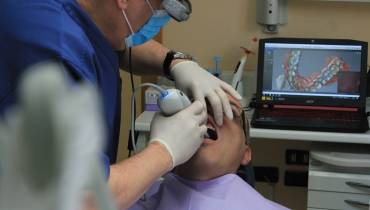The Link Between Hearing Loss Problems and Dementia [Studies]

Dementia mostly occurs in elderly people. When it occurs, people go through different problems, such as memory loss, language issues, and other cognitive problems. One’s cognitive abilities get severely affected when you suffer from dementia.
As populations around the world get older, the health condition could become more pronounced. As such, it’s important to stay alert, get checked, and seek treatment fast.
There can be many causes for someone suffering from dementia, such as strokes, Alzheimer's disease, and a variety of other diseases that cause damage to brain cells.
In fact, studies now find something seemingly small like gradual hearing loss can be a precursor or cause of dementia.
Yes, science shows hearing loss problems can be a reason for getting dementia in the future.
Link Between Hearing Loss and Dementia
Many studies and research have been done to observe the relationship between dementia and hearing loss. Even though results are not conclusive, scientists are on course to uncovering the full extent of the connection between hearing loss and dementia.
Similar to dementia, scientific studies and reports show hearing loss affects older people mostly. An estimated 30% of adults aged 65 or higher and 55% of adults aged 80 years or more show signs or symptoms of hearing loss to some degree.
The World Health Organization (WHO) projects that nearly 2.5 billion people worldwide will have some degree of hearing loss by 2050, and at least 700 million will require hearing rehabilitation. Those are people who may also be at risk of dementia.
A 2015 study found that around 47 million people who were affected by hearing loss problems also got diagnosed with dementia. Studies increasingly seem to suggest that hearing loss, at the very least, puts you at greater risk of cognitive impairment as you get older.
A Lancet review of international research found that 9% of people who developed dementia were suffering from unaddressed hearing loss problems in mid-life. The risk of dementia developing further increased for older adults with mild hearing loss. The review suggested that one in three cases of dementia could be prevented if more people looked after their health throughout their lives.
Studies have also shown that the brain tissues shrink and deteriorate faster for those affected by hearing loss. The parts of the brain where this shrinkage takes place are responsible for processing sound and speech. Since hearing impairment can result in auditory deprivation, over time the parts of the brain responsible for hearing and processing auditory data can shrink or atrophy due to lack of stimulation and use.
As brain atrophy (shrinking) happens, some common symptoms that people might face due to hearing loss and dementia include confusion during conversations, difficulty accomplishing regular tasks, tiredness, and stress that can also get established.
Theories On the Link Between Dementia and Hearing Loss
As already stated, the actual connection between dementia and hearing loss is still not very clear. Scientists still don’t have enough information and evidence yet to say conclusively that hearing loss problems are directly responsible for dementia.
However, according to many different studies, scientists have found a link or associations between these two. But research is still ongoing and scientists are not completely convinced yet, so they are not drawing any conclusion as yet.
Some people will still have dementia and not have any hearing issues, while others can have partial deafness and not suffer from any memory loss or other cognitive problems.
That being said, studies have found central hearing loss could be an initial symptom of Alzheimer’s disease. Dr. Karl Doerfer, MD, of Medical College of Wisconsin, observes:
“There’s a strong association between the two [dementia and hearing problems], though we haven’t been able to determine causality. However, studies have shown a powerful association, and, in addition, we have seen that the severity of cognitive decline is associated with the severity of hearing loss, which shows a compelling connection.”
While the brain does become smaller with age, the shrinkage seems to be accelerated in older adults with hearing loss. A person who has hearing loss is prone to rapid brain atrophy, memory loss, and other cognitive problems that ultimately can lead to dementia.
Moreover, patients who suffer from hearing losses might not hear every piece of information in conversations. As a result, things they miss are not processed by their brain and it’s often assumed they are suffering from memory losses.
People who suffer from hearing issues also sometimes socially isolate themselves due to a lack of confidence in presenting themselves. This can cause mental health and other problems that can limit their function further and aggravate their situation.
What to Do to Mitigate Hearing Loss and Dementia
First of all, if you ever feel like you might have hearing loss problems, it’s advised that you go visit your doctor immediately and undergo necessary tests. If hearing loss problems aren’t treated early, it can get more problematic later.
Find a reputable doctor/audiologist at once and consult them about your problems. If you are diagnosed with hearing loss issues, they’ll suggest appropriate hearing loss and hearing health care and treatments, such as using hearing aids.
Hearing aids employ modern technologies to amplify sounds you’re listening to and can help you hear and communicate better. New hearing aids that have improved signal processing also allow for easier speech understanding even with background noises.
For temporary hearing loss problems, the doctor might suggest medications or other surgeries that will restore or make your hearing better. And for the permanent hearing loss problems, you may have to go for options like hearing aids or cochlear implants.
Even if you’re experiencing hearing issues, memory loss due to partial deafness, and you might be at greater risk of developing dementia in old age due to hearing problems, there is still a chance that you might recover if you seek professional help from your doctor as early as possible, protect your ears from sounds that are too loud and last too long (noise-induced hearing loss), and use hearing devices where necessary.
In fact, one study found that wearing hearing aids “may reverse compensatory changes in cortical resource allocation” This means that the negative changes in your brain and atrophy may improve with consistent use of prescribed hearing aids.
In Conclusion
With populations around the world aging, the number of people with hearing loss may increase. It’s important to look out for any hearing issues you may have and take hearing care seriously.
While hearing loss may occur slowly, typically over a matter of years, don’t ignore it or delay getting professional help and treatment. Early intervention is key. And hearing aids can also greatly help a person with hearing problems.
Even after diagnosis, however, studies have found most people wait an average of 10 years to seek help and get the hearing aids that’ll help them hear better. That’s a mistake you must avoid.
Seek swift treatment for hearing loss. This way you can mitigate hearing loss problems and also possibly prevent further complications like dementia, especially in old age.
Updated: Originally published April 2022.





















